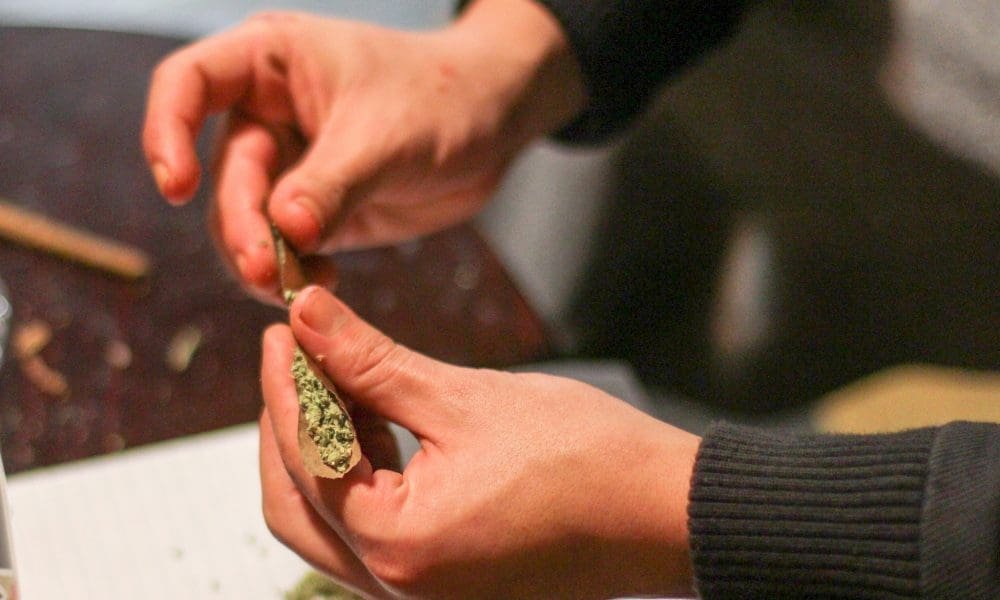“I obviously appreciate that we’re a little behind…the schedule that we laid out last December, but I still think we’re making great progress.”
The Cannabis Control Commission said on Tuesday that the agency is aiming to release final social consumption regulations by October of this year—later than the “mid-2025” goal that the agency had previously indicated.
In July, the commission will vote on the draft social consumption regulations before submitting them to Secretary of State for official recording. After that, the agency is going to hold a hearing and take comments from the public. By late August or September, the testimony from the public will be included in a new draft. The regulations are then resubmitted by the Secretary and made enforceable on October 1.
“I obviously appreciate that we’re a little behind…the schedule that we laid out last December, but I still think we’re making great progress,” Acting Chair Bruce Stebbins told CommonWealth Beacon following the public meeting. It’s not a quick fix. [that] Included[s] As we near the end, I would like to thank all of our staff and commissioners for their input.”
The framework in the new social consumption regulation—which was first unveiled in December 2024—is currently set to create three proposed types of licenses. A new “supplemental” license will allow existing marijuana businesses to add a social consumption area—such as a “tasting room”—where customers can consume cannabis purchased on-site. An “hospitality’ license allows cannabis consumption on the premises of non-cannabis business, such as cafes, theaters, lounges, and yoga studios. Finaly, an “event-organizer” license allows cannabis consumption during events such as festivals, if they do not last longer than 5 days.
It is not yet clear what the exact details will be of the proposed regulations. The vote on July 7th, however, could still include these updates.
Stebbins explained that social consumption will continue to be implemented even after regulations have been finalized. To allow social consumption in Massachusetts, communities will need to “opt-in”. The Massachusetts Cannabis Control Commission will also have to approve the licenses.
Social consumption—the ability to consume cannabis products in designated public spaces—has been legal in the state since the ballot question legalizing marijuana was approved by voters in 2016, but the commission has been slow to roll out regulations to create the framework to support it.
The commission’s last major changes to the regulations—which removed the two-driver requirement for cannabis delivery—took a long time to come to fruition. The agency took almost a year to issue the final regulations, even though the commission had voted in favor of the much-anticipated amendment to the “two-driver” rule. The cannabis industry has expressed frustration over the slow pace at which the Commission has updated its regulations to include social consumption.
Since Treasurer Deborah Goldberg removed Shannon O’Brien as the chairperson of the Commission for making racist comments, there has been controversy surrounding this commission. The agency has been accused of bullying, and it failed to collect more than $500,000 in license fees. The Inspector General called it a “rudderless vessel” in June and asked lawmakers to place the agency under receivership.
The five-member cannabis commission has been reduced to just three members and faces a deadlock because the three commissioners have to agree in order for any commission action to be taken. On June 4, the House approved a bill to reform the cannabis commission. This would make it a three member body, appointed by the Governor alone. There is no indication that the Senate will consider the cannabis bill.
The community is excited about the project. [social consumption]I believe we are getting close to the point when we will have regulations which will prioritise public safety and health, while at the same will [bring] Stebbins stated that “potential licensees have exciting new licensing opportunities.”
This article first appeared on CommonWealth Beacon and is republished here under a Creative Commons Attribution-NoDerivatives 4.0 International License.
‘Justice Is Still Being Denied’ To People With Past Marijuana Convictions As Legalization Spreads, Review By Advocacy Group Says
Martin Alonso. Photo by Martin Alonso.





